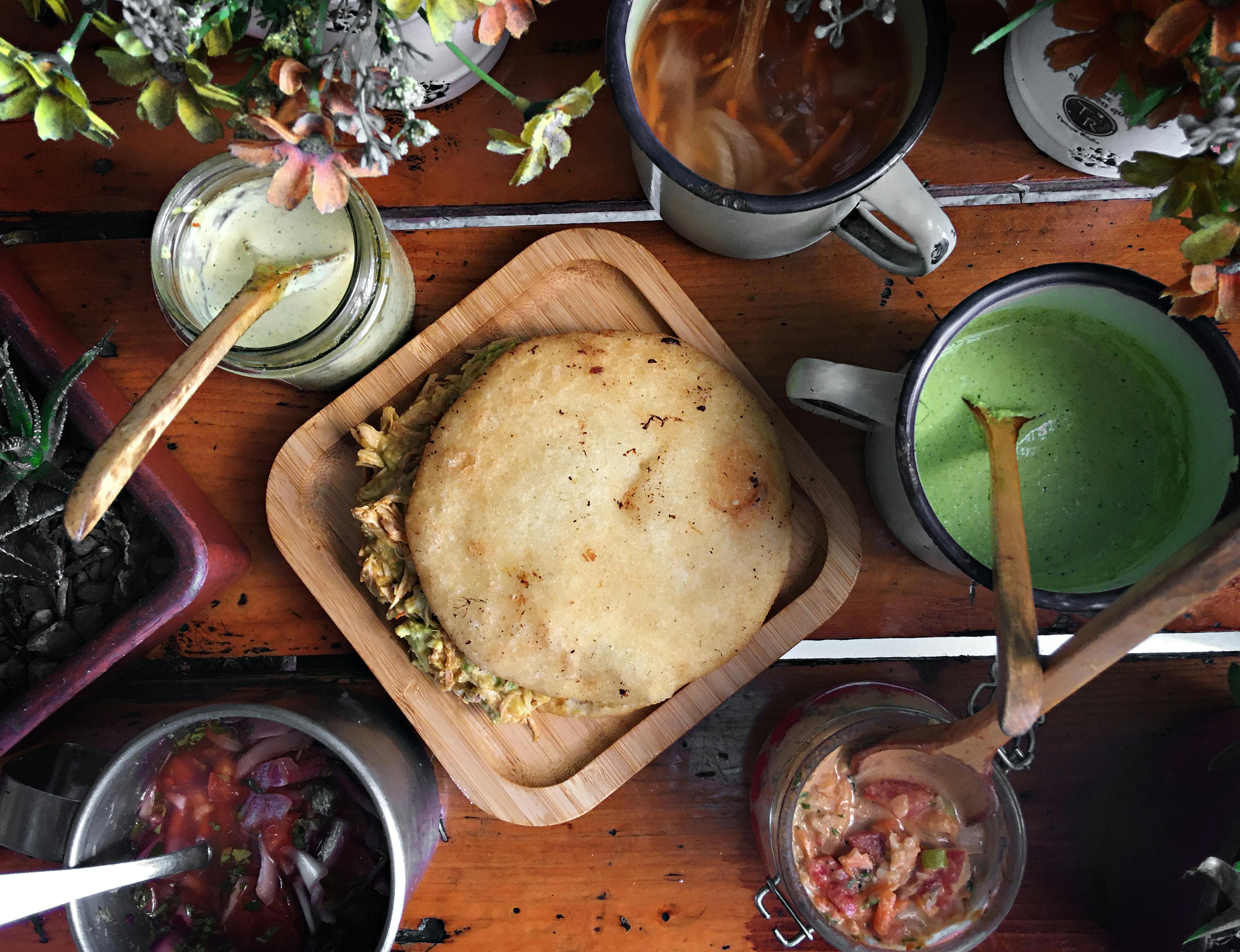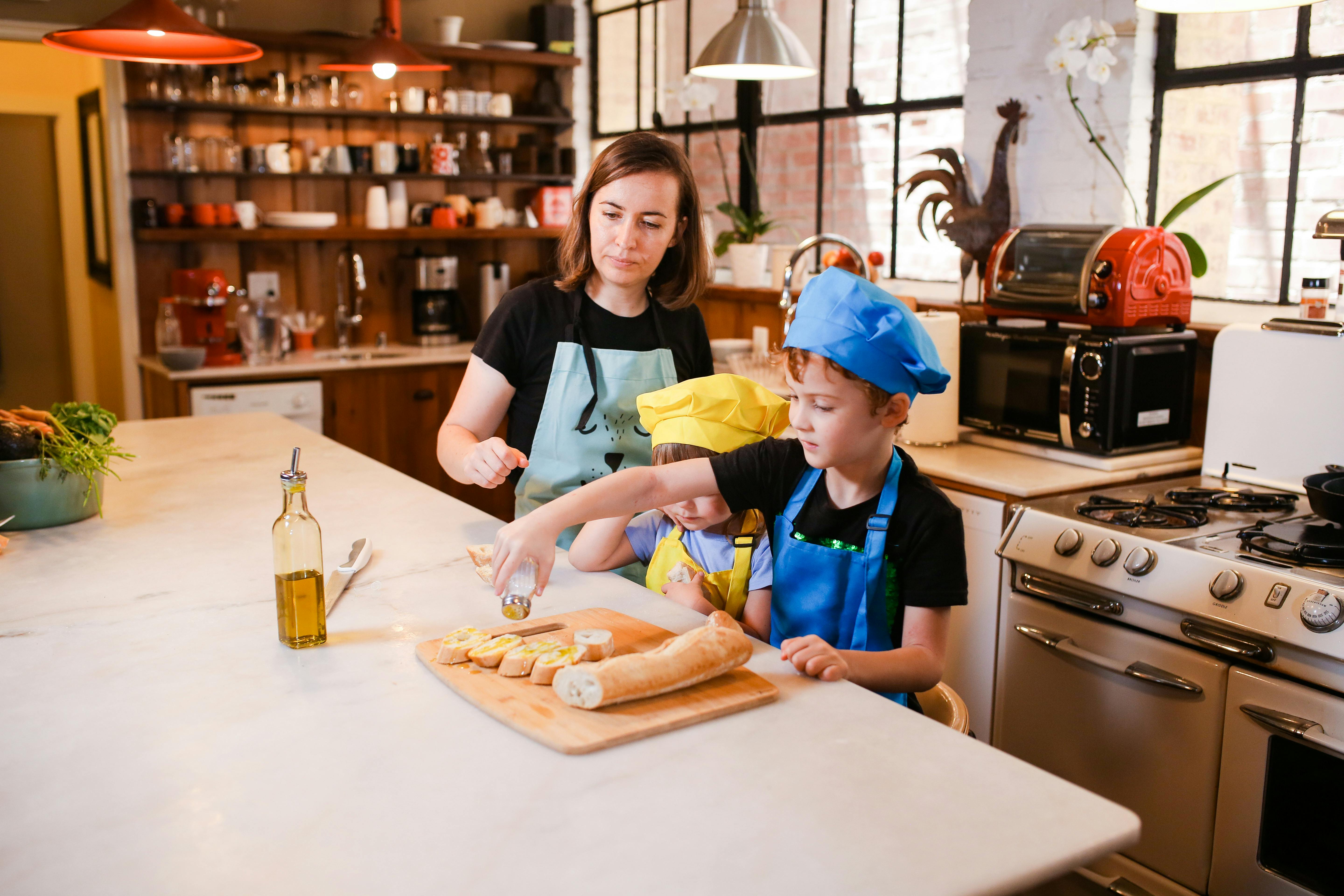Venezuela Budget Cooking: Simple Healthy Recipes for Small Families
Ever found yourself wondering exactly how Venezuelan families, grappling with changing markets and unpredictable incomes, manage to cook healthy meals on a shoestring budget—day after day? Me too, and frankly, I wish I’d understood the real strategies a decade ago, before stumbling through more than a few culinary disasters trying to feed my own family in Maracay. For anyone hoping to stretch their bolívars while still eating well, Venezuela offers an ingenious playbook for small-family cooking that’s as practical as it is soulful. What struck me most when I first visited was how neighbors adapted with creativity, resilience, and a deep cultural pride—a combination rarely spelled out in the usual budget blogs. So let’s break it down, step by step, with genuine human insight and local flavor.
Why Venezuelan Budget Cooking Works
The reality? Venezuelan budget cooking is built on flexible principles anyone can use—whether you’re facing economic uncertainty or just aiming for efficiency. Lots of people assume these meals are bland, repetitive, maybe even unhealthy. Honestly, that couldn’t be further from the truth. Over years of interviewing home cooks from Caracas to Mérida, I’ve seen how flavor, family identity, and resourcefulness come together on every plate1. Funny thing is, what outsiders call “poverty cuisine” is, in fact, the backbone of Venezuelan culinary culture—simple, deeply nutritious, and born from necessity. You learn to use every scrap and make each ingredient stretch; you adapt recipes each week based on what’s affordable, in season, or even just what turned up at the market after a long blackout.
From my perspective, mastering budget cooking in Venezuela isn’t just about saving money: it’s about strengthening family ties, honoring local tradition, and embracing creative problem-solving. Meals tell stories here, and every improvisation is a mark of pride.
Essential Local Ingredients for Savings
Here’s what I should have mentioned first: if your shopping list focuses on imported brands, it’s game over before you’ve started. The core of smart Venezuelan budget cooking is native staples—yuca (cassava), plantains, corn flour, beans, sardines, eggs, and local vegetables like chayote or ocumo. Even during inflationary spikes, these ingredients stay relatively affordable and, crucially, nutrient-rich, supporting health while lowering your bill2.
- Corn flour (Harina PAN): for arepas and empanadas
- Black beans (Caraotas): a protein powerhouse that stars in most “almuerzos”
- Local root vegetables (e.g. yuca, ocumo): versatile and filling
- Fresh produce from neighborhood “abastos” (fruit/veg shops)
- Sardines: often overlooked but super affordable and loaded with calcium
- Eggs: reliable, multipurpose base for dozens of quick, healthy dishes
Honestly, I used to think sticking to basics meant boring dinners—a mistake. Once I leaned into local staples, my family meals became more varied, colorful, and taste-driven.
Did You Know? Venezuela’s “Mercado Municipal de Chacao” in Caracas is one of South America’s largest fresh produce hubs. Its legacy of local trading dates back to the early 20th century—a living testament to sustainable, affordable ingredient sourcing.
Seasonal Shopping and Market Strategies
What really strikes me is how time of year changes everything for small families shopping in Venezuela. Rainy seasons bring green mangoes, yuca, and massive squash to market; dry months highlight tomatoes, plantains, and herbs. Savvy shoppers time purchases around weekend market cycles and crowd peaks, often getting the best deals early in the morning before vendors adjust prices. Want another tip? Many families shop “by the basket,” dividing produce among friends and neighbors to reduce per-family costs3.
- Buy in bulk with neighbors for reduced rates
- Learn seasonality (e.g., mangoes in spring, squash in fall)
- Choose local produce over supermarket imports
- Ask vendors about “seconds”—slightly bruised but perfectly edible for stews
On second thought, it’s not only what you buy, but when and how you shop that determines weekly costs. Every trip to the mercado is a chance to create culinary wins on a budget.
Building a Healthy, Affordable Pantry
I remember when this first clicked for me—standing in a neighbor’s kitchen, admiring glass jars full of lentils, dried corn, and homemade spice mixes. Venezuelan kitchens aren’t packed with luxury ingredients, but every shelf tells you something about survival and adaptability. Here’s my progressive pantry list for small families aiming for health without overspending:
- Dried beans and lentils: Buy in kilo sacks; store in airtight containers for months
- Rice and corn flour: Reliable every day bases (always check expiry dates on bulk buys)
- Local herbs and spices: Cilantro, cumin, annatto—the heart of Venezuelan flavor
- Plantains/yuca: Cheap, nutritious, and foundational for various meals
- Onions and garlic: Bought weekly—these lend flavor when meat is scarce
Confession time: I used to dismiss dried beans as “too time-consuming.” Turns out, if you prep them overnight and batch-cook, you actually save heaps of time and money. Lesson learned, thanks to my mother-in-law’s relentless encouragement.
Sample Weekly Menus: Real-World Examples
Ever paused to consider just how diverse a week of “budget” meals can be in Venezuela? Take a look at this real-life menu sampled from Maracay friends—a balanced mix of local protein, vegetable variety, and popular family favorites, all with authentic cost breakdowns.
| Day | Breakfast | Lunch | Dinner |
|---|---|---|---|
| Monday | Arepas with scrambled eggs & tomato | Black bean stew, rice, fried plantain | Vegetable soup, yuca toasts |
| Tuesday | Cornflour pancakes & mango slices | Chicken and yuca soup, fresh salad | Fried rice with carrot, sardine, green beans |
| Wednesday | Boiled plantain, cheese, coffee | Pulled beef (asado negro), rice, steamed veggies | Harina PAN empanadas stuffed w/ leftovers |
| Thursday | Fruit salad, leftover arepas | Lentil soup, chopped avocado & onion | Sauteed squash, tomato rice |
| Friday | Egg arepas, guava smoothie | Braised sardines, sweet potatoes | Bean patties, homemade salsa |
Let that sink in for a moment—these aren’t bland, monochrome meals. Each dish taps local traditions and hits serious nutritional benchmarks, providing a solid foundation for small families.
Smart Cooking Techniques to Reduce Costs
Here’s the thing though: budget ingredients alone won’t cut it if your cooking methods waste resources. Take batch prep, for example. Families routinely cook beans in large pots, then freeze portions or reinvent leftovers into “caraotas refritas” (refried beans) to stretch them over several meals4. Pressure cookers save energy when boiling root veggies. I’ll be honest, I resisted pressure cooking for years until the rising cost of gas made it a necessity.
- Batch cooking: Prepare beans, rice, and soup bases once per week to save money and time
- Reuse leftovers: Transform yesterday’s soup into today’s empanada filling
- Utilize “low and slow”: Simmer stews and braises using cheaper cuts that soften with time
- Prep vegetables for multiple meals: Chop early, store in water, reduce spoilage
I go back and forth on whether daily batch prep is ideal for everyone, but for small families it almost always delivers—especially when resources and time are tight.
“Cooking with local staples isn’t just a cost-saving measure—it’s a way of building resilience and sharing family stories. Every meal is a cultural lesson.”
Family Involvement and Cultural Wisdom
Honestly? The jury’s still out for me on the “one cook does it all” school of thought. Venezuelan families, by and large, accomplish more when everyone pitches in. Kids peel yuca, fathers stir the beans, grandparents perfect seasoning. This isn’t just about tradition—it’s about sharing the budget burden and cultivating pride in resourcefulness5.
Pause here and think about: How does your family approach daily cooking tasks? Is there room to integrate kids or partners into small steps, even if it’s just setting the table or washing produce?
The more I consider this, the more convinced I am that healthy, budget-focused cooking becomes family glue—a way to hand down knowledge, share stress, and build happier meal memories.

Budget Comparison Table: Local vs Imported
Let’s get real: sometimes, small families are tempted by imported items promising convenience or status. What’s the real trade-off—nutritionally and financially? I researched actual prices from Maracay and Caracas in spring 20246. Here’s a snapshot comparison for small-family grocery staples:
| Ingredient | Local (Bs/kg) | Imported (Bs/kg) | Nutrition/Benefit |
|---|---|---|---|
| Harina PAN (corn flour) | 22 | 61 | High energy, fortified with vitamins |
| Black beans | 30 | 54 | Protein, iron, fiber |
| Local sardines | 29 | 77 (canned) | Omega-3, calcium |
| Yuca | 15 | 38 | Vitamin C, carbs |
Pretty eye-opening stuff. I’m not entirely convinced imported food ever justifies the extra cost for small families. The more you invest in local staples and adapt recipes, the more you can feed everyone well and still keep a bit of margin for treats…or surprise price surges.
Common Challenges and Authentic Solutions
Sound familiar? There’s always that moment when something you planned is suddenly unavailable (strike, shortage, weather, or political hiccup—a constant reality here)7. Learning to adapt quickly is absolutely crucial. From my experience, here are top three real-life obstacles and straightforward ways actual Venezuelan families overcome them:
- Ingredient Shortages: Substitute with local equivalents (e.g., swap potatoes for ocumo)
- Price Inflation: Plan recipes around core pantry items and use price tracking apps to anticipate increases
- Kitchen Equipment Failure: Rely on “olla de barro” (clay pot) cooking or open fire methods—sometimes more flavorful anyway!
“Resourcefulness is a way of life here. Even when stores are empty, we find a way to celebrate what we have.”
On second thought, I realise it’s these daily pivots and small victories that transform budget cooking from a grind into genuine family achievement. If you’ve ever felt frustrated by sudden market changes—trust me, you’re not alone.
Expert Q&A: Local Voices on Healthy Budget Cooking
Ever notice how advice seems more authentic when you hear it directly from those living the experience? Below are distilled Q&As with local cooks and food educators. These answers reflect current realities and evolving wisdom8:
- Q: “How do you prioritize nutrition for small children with a limited budget?”
A: “Focus on protein (eggs, beans) and seasonal fruit. Skip expensive sweets and keep hydration with agua panela (sugarcane water).” - Q: “What are your go-to quick dinners?”
A: “Bean patties with rice. Steamed yuca with scrambled eggs and leftover vegetables. Always keep rosemary and cumin for flavor.” - Q: “What’s changed in your shopping habits this past year?”
A: “I’ve shifted to buying produce in bulk—sometimes through WhatsApp groups of neighbors. We share baskets to save more.”
Sustainability and Seasonal Adaptation
Looking ahead, sustainability isn’t just environmental—it’s about family stamina and health, too. Venezuelan home cooks routinely compost scraps, plant windowsill herbs, and lean into recipes that use every last bit of produce. During mango season, people bottle their own compotes for year-round use (my personal best batch was from a crate of nearly-overripe fruit I paid less than a dollar for)9. As seasons shift, so do weekly staples, keeping the menu fresh and cost-controlled.
I’m still learning about managing food waste, but each year I find more ways to repurpose odds and ends as fillers, snacks, or compost. Call it a journey—not just a set of instructions.
Conclusion & Key Takeaways
What have we really learned here? Cooking healthy, budget-friendly meals for small families in Venezuela isn’t about having a fixed script, but about knowing where to pivot, when to improvise, and how to bring family and cultural roots right into the kitchen. The core playbook: rely heavily on local, nutrient-dense staples; leverage community market connections and seasonal abundance; share tasks and meal prep across generations; and always keep the spirit of adaptation alive.
Funny thing is, the same week I interviewed several families for this guide, the government rolled out another food policy change—and everyone seemed to have not just a backup recipe, but a backup plan for shopping, prepping, and sharing. This is resilience. This is food culture.
Here’s my challenge to you: Try building a simple weekly menu based primarily on local staples next week. Involve your family—kids, partners, grandparents—at every step. Track your cost versus previous weeks of imported ingredients. Reflect on the difference in taste, nutrition, and, above all, the sense of connection it brings.
Future-Proofing Your Kitchen
Looking ahead, even as local food prices and availability change, these principles remain evergreen. Flexible recipes, smart shopping, and family involvement can evolve without losing their core strength. My current thinking? Update often: swap ingredients based on market shifts, adjust seasonings to match what’s available, and keep learning from your kitchen mistakes. As someone who’s repurposed these ideas for both blog and offline community classes, I can promise—they work just as well now as in previous years.
“Every time we cook with what’s at hand, we reinforce community bonds. True abundance comes from sharing, not spending.”
References
References



